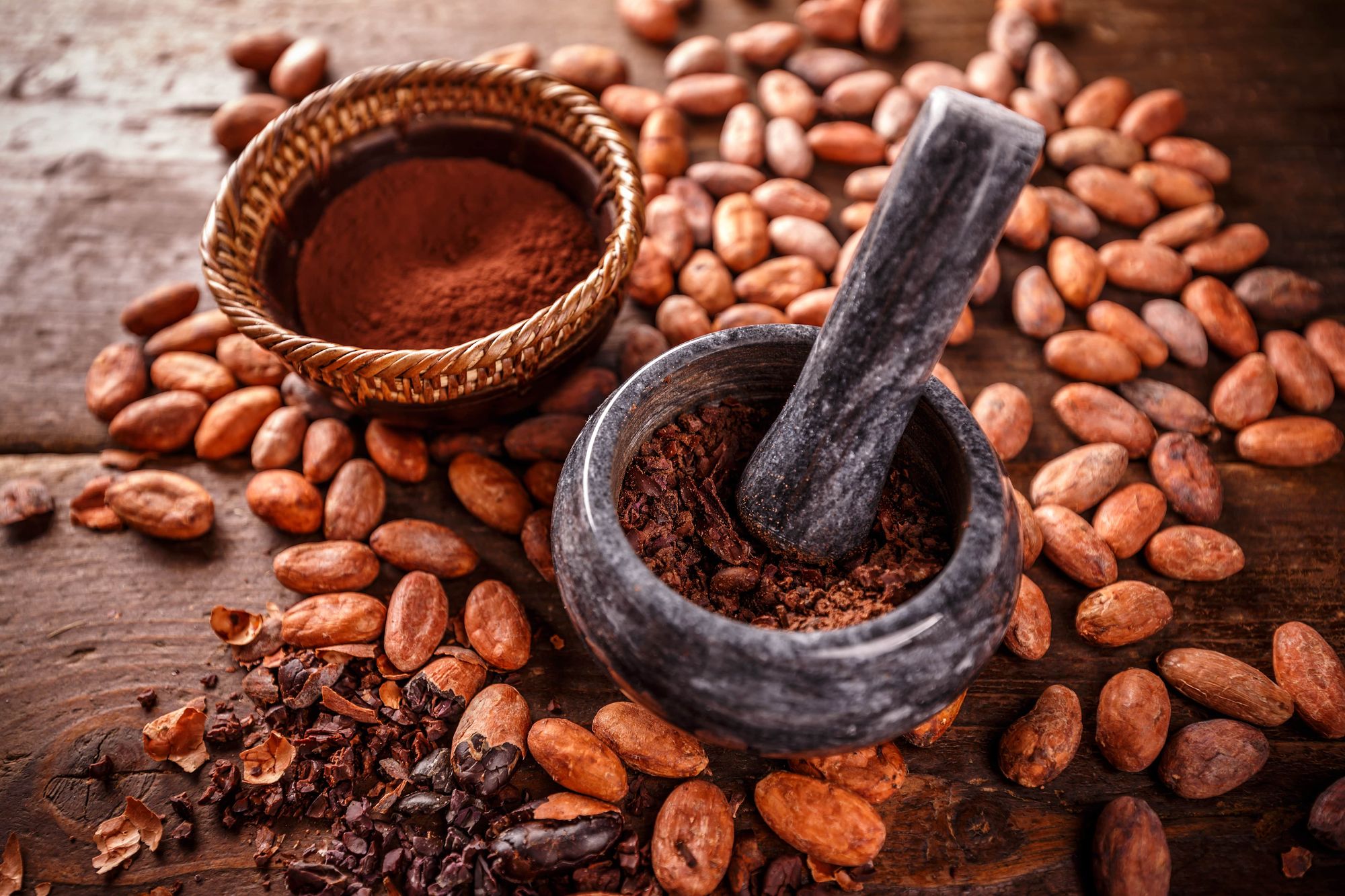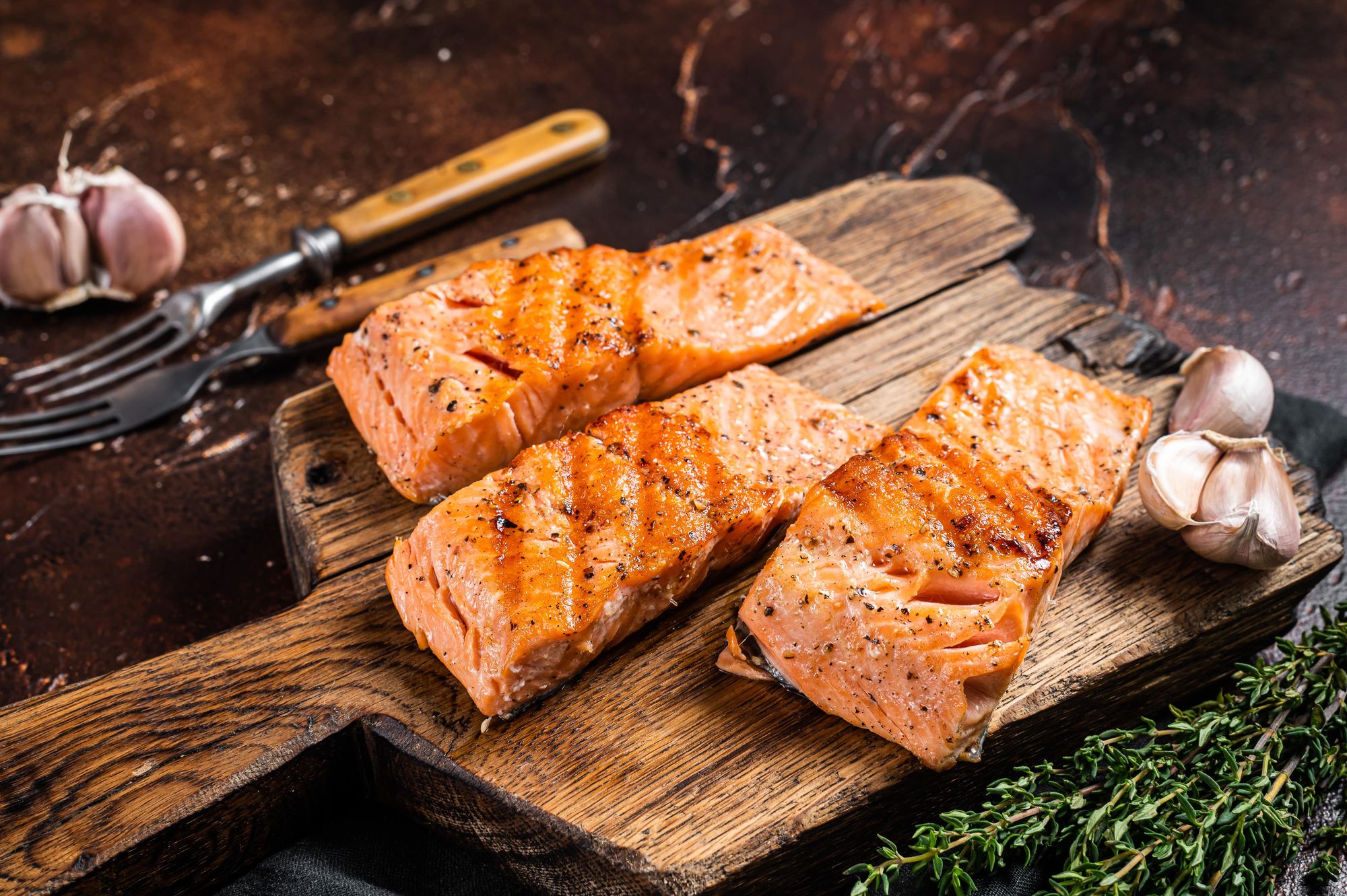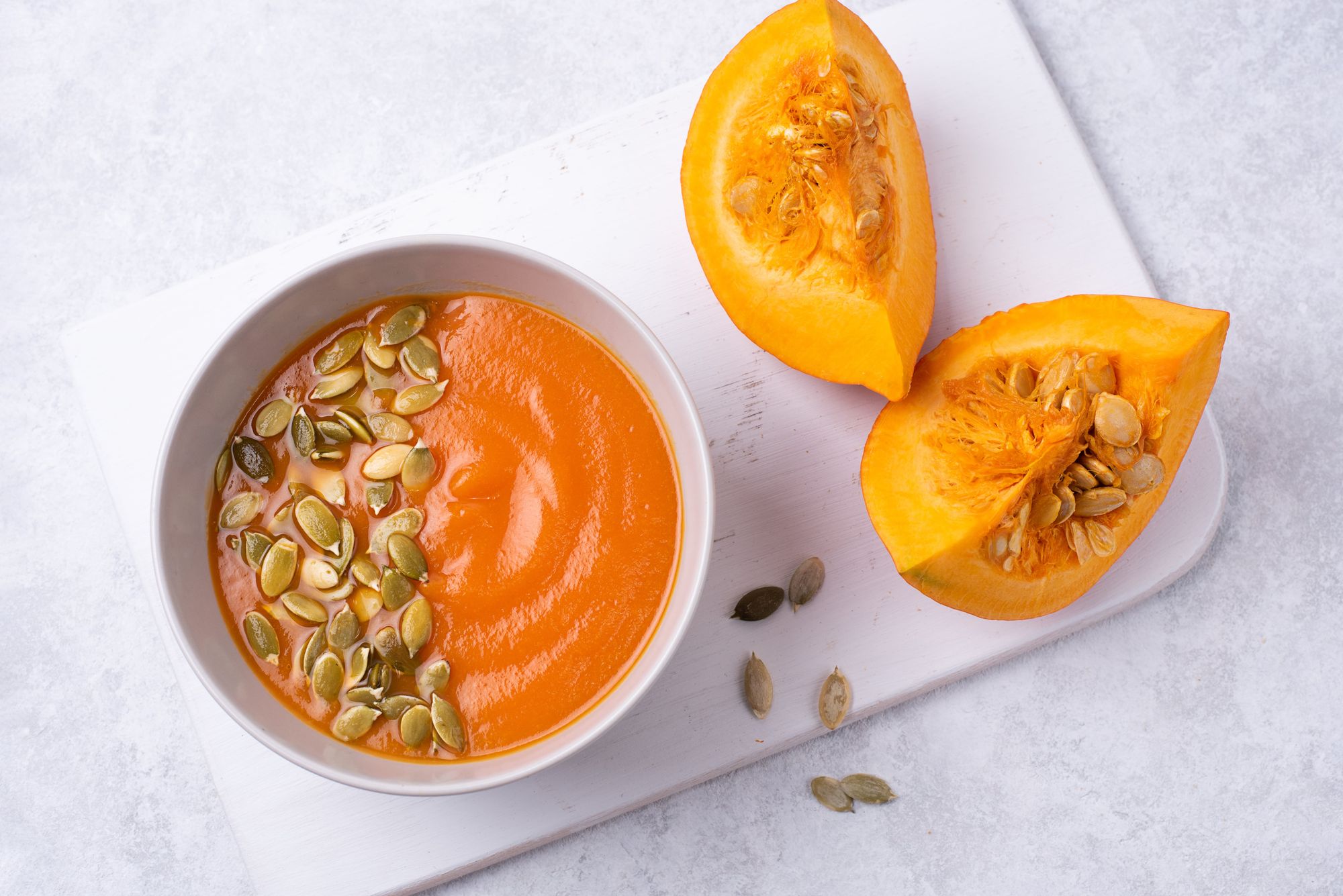
If you often feel stressed, it might ease your mind to know that there are many natural ways to reduce stress, including certain stress relieving foods you can eat to help combat stress.
When you’re stressed out, it can be tempting to self-medicate with junk food (stress eating, or with alcohol), but these aren’t healthy ways to cope with stress.
It’s much healthier to try to combat your stress with deep breathing, yoga, meditation, exercise, or by modifying your diet by eating more healthy, stress relieving foods.
It’s important to address your stress, because chronic stress can be very harmful to both your mental health and your physical health.
Why Do Stress Relieving Foods Work?
There are many reasons why certain foods can help combat stress. For one thing, certain foods boost levels of serotonin in the brain, which is a brain chemical known for increasing feelings of happiness. Other types of foods can reduce the stress hormone (cortisol) in your body.
Top Foods That Can Help Reduce Stress
Certain foods are known for potentially worsening your mood or exacerbating stress, including foods high in sugar. This is because sugar makes your blood sugar level rise, and your body must produce more cortisol (the stress hormone) to help regulate your blood sugar. Excess caffeine can also exacerbate stress, because let’s face it: caffeine doesn’t exactly have a calming effect on us. Try to limit your caffeine intake to 1 cup of coffee per day, or switch to green tea.
Below are some of the best stress relieving foods you can buy:
1. Cruciferous Vegetables
Cruciferous vegetables such as cauliflower, broccoli, bok choy, cabbage and kale are stress relieving foods that may help combat both stress and depression, and help improve your mood when eaten regularly.
Not only are cruciferous vegetables extremely nutritious and healthy, they’re also rich in a plant-based compound called sulforaphane which, according to research, has antidepressant and mood regulating effects, so it can combat stress and anxiety.
If you eat these vegetables raw, you’ll get even more sulforaphane.
Swiss chard is another cruciferous vegetable which is one of the top stress relieving foods because of its very high magnesium content. Just 1 cup of this leaving green vegetable contains over 35% of the daily recommended intake of magnesium.
Magnesium helps with overall mood and brain function, and it’s known for being a stress-fighting mineral. Magnesium also helps regulate the production of the stress hormone, cortisol, and studies have found magnesium to have positive effects on those with stress and anxiety.

2. Raw Cacao
Raw cacao is a superfood with plenty of incredible health benefits. This natural, plant-based superfood is derived from Amazonian tree fruit. Raw cacao is rich in stress-busting magnesium, as well as zinc, iron, and antioxidants.
Raw cacao is commonly used as a natural remedy for stress and anxiety, and as an added bonus, it can even improve your skin health due to its antioxidants and anti-inflammatory properties.
Raw cacao powder is a fantastic ingredient to add to a smoothie to give yourself a health boost and help manage your stress level. Just don’t confuse this superfood with cocoa powder, which is not the same thing at all. Raw cacao powder is made from cold-pressed, raw cocoa beans, and that’s the key difference.
However, dark chocolate is also one of the popular stress relieving foods people eat to combat stress, if you can’t get your hands on raw cacao.
3. Complex Carbs Such as Sweet Potatoes
Upon consumption, carbohydrates prompt the brain to make more serotonin, which is one of the brain chemicals associated with happiness, improved mood, and reduced stress.
One complex carbohydrate in particular, sweet potatoes, are known to be one of the best stress relieving foods you can eat, largely due to their magnesium content and their ability to lower the stress hormone, cortisol.
Dr. Felice Gersh explains, “Sweet potatoes contain high amounts of magnesium, often considered to be one of the best minerals for promoting relaxation, calmness and improved mood. As we already know, they are also rich in potassium, which helps regulate your heart beat when you are anxious or stressed.”
4. Matcha-Infused Foods
Matcha powder, which is made from green tea leaves, can help reduce stress because it contains certains stress-reducing compounds, such as L-theanine. This is backed by research.
In a 2019 study, the participants ate cookies that contained matcha. Each cookie contained over 4 grams of matcha powder, and the study’s participants who consumed matcha were shown to have reduced activity of the stress marker sAA. Those who consumed a placebo (no matcha) didn’t have these same results.
Matcha powder can be used in your smoothies, added to baked goods, or consumed as a matcha latte – just to name a few examples of ways to consume matcha. There are many health benefits of matcha in addition to combating stress.
5. Turkey
Tryptophan-containing foods such as turkey will promote serotonin production in the brain, and make you feel calmer. It’s a well-known fact that turkey makes you feel calm, and you have its tryptophan content to thank for that. Pineapples and oats are also foods that contain tryptophan.
This research study found that consuming high tryptophan foods resulted in significantly improved mood, reduced stress and reduced feelings of depression in participants.

6. Foods High in Omega-3 Such as Fatty Fish and Chia Seeds
Fatty fish such as salmon, mackerel, and herring are great for your mental health because they’re rich in omega-3 fatty acids.
Omega-3 is known to help improve your mood, brain function, and reduce stress. Foods high in omega-3 such as fatty fish, walnuts and chia seeds are some of the best stress relieving foods out there.
Low levels of omega-3s are shown in studies to contribute to increased stress, anxiety and depression.
7. Nuts
Many different nuts are known for being stress relieving foods. We’ve already discussed how walnuts are a great source of mood-boosting omega 3. Pistachios are another nut that can help reduce stress. Pistachios help lower blood pressure and they’re a good source of both magnesium and omega-3.
8. Eggs
Eggs are incredibly nutritious and healthy, and they’re one of the stress relieving foods you can eat, so you may want to start making more omelets.
Eggs contain plenty of healthy vitamins and minerals, as well as Choline, a nutrient that studies have shown can improve people’s stress response and improve their mood.
9. Anti-Inflammatory Foods
Many people eat an anti-inflammatory diet for health reasons. One of the health benefits of eating anti-inflammatory foods is that when you reduce inflammation in your body, you also reduce cortisol levels in your body. Anti-inflammatory foods are often stress relieving foods for this reason.
Here is a list of anti-inflammatory foods, which includes stress-busting foods such as cruciferous vegetables, fatty fish, and berries.
Could a Mediterranean Diet Help Combat Stress?
The Mediterranean diet is a diet inspired by the eating habits of European people who live by the Mediterranean Sea. This includes foods such as fish, seafood, and plant-based foods including healthy fats. Foods commonly eaten on the Mediterranean diet are the many of the same foods that are stress relieving foods mentioned in this list.
Your DNA test from CircleDNA will reveal whether or not the Mediterranean diet is the best diet for you, based on your genetic makeup. Your DNA factors into which specific diet plans suit you best, and among the 500 reports about yourself revealed by a CircleDNA test, you’ll get to read your genetic diet and nutrition profile with dietary tips that suit your specific genetic makeup.

How to Incorporate Stress Relieving Foods into Your Diet
Now that you’ve read this list of stress relieving foods that could help you combat stress, you need to think of ways to incorporate these foods into your diet.
Matcha powder and raw cacao powder can easily be added to smoothies or baked goods. And, since both nuts and dark chocolate can help reduce stress, why not snack on some trail mix that contains dark chocolate chunks and stress-fighting nuts? Throw in some pumpkin seeds, which are also high in magnesium.
As far as dinner time goes, try to eat more fatty fish and complex carbohydrates such as sweet potatoes for dinner. There is a saying, You are what you eat, and you just might find that eating more of these healthy stress relieving foods helps you feel less stressed.
References:
- Sulforaphane produces antidepressant- and anxiolytic-like effects in adult mice (Shuhui Wu et. al.) https://pubmed.ncbi.nlm.nih.gov/26721468/
- The Effects of Magnesium Supplementation on Subjective Anxiety and Stress—A Systematic Review (Neil Bernard Boyle,,Clare Lawton and Louise Dye) https://www.mdpi.com/2072-6643/9/5/429
- The Health Benefits of Sweet Potatoes by Felice Gersh, M.D. https://integrativemgi.com/health-benefits-sweet-potatoes/
- Stress-reducing effect of cookies containing matcha green tea: essential ratio among theanine, arginine, caffeine and epigallocatechin gallate (Keiko Unno et. al.) https://www.ncbi.nlm.nih.gov/pmc/articles/PMC6512570/
- The Effects of Dietary Tryptophan on Affective Disorders (Glenda Lindseth, Brian Helland, and Julie Caspers.) https://www.ncbi.nlm.nih.gov/pmc/articles/PMC4393508/
- Dietary intake of fish and PUFA, and clinical depressive and anxiety disorders in women (Felice N Jacka et. al.) https://pubmed.ncbi.nlm.nih.gov/23051591/
- Supplemental dietary choline during development exerts antidepressant-like effects in adult female rats (Melissa J. Glenn, Raven S. Adams, and Lauren McClurg.) https://www.ncbi.nlm.nih.gov/pmc/articles/PMC3327365/







This Post Has 3 Comments
Comments are closed.